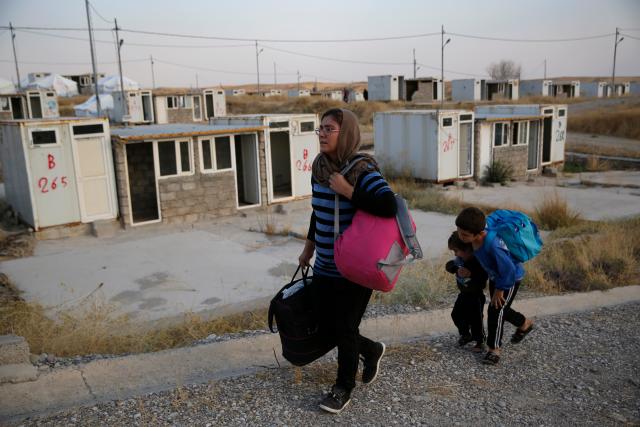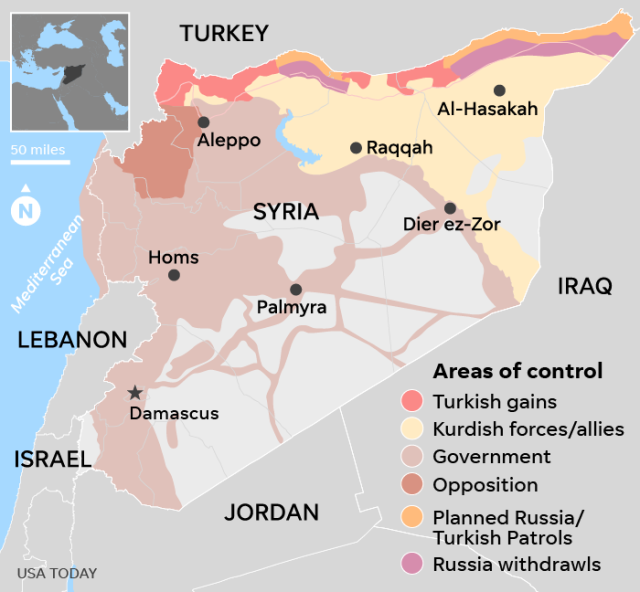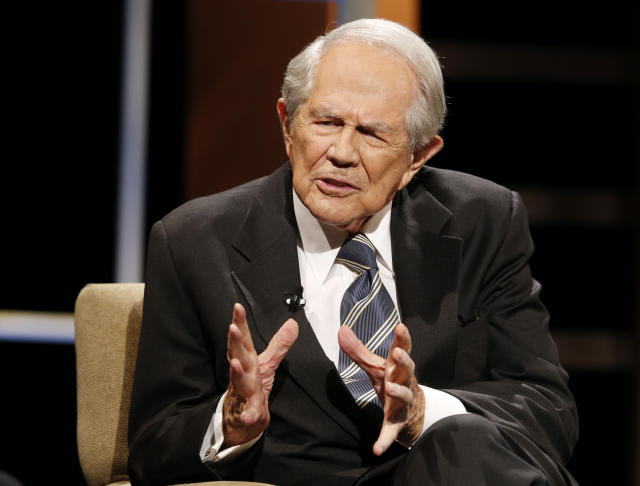Chris Jackson/Getty Images
- President Donald Trump told reporters on Tuesday morning that he didn't know Prince Andrew.
- However, there are photos of the two men attending functions and chatting effusively in February 2000 and last June.
- Andrew's reputation has taken a massive hit since he gave a prime-time interview last month about his relationship with the disgraced financier Jeffrey Epstein.
- Trump has also sought to distance himself from Epstein in recent months.
President Donald Trump on Tuesday denied knowing Prince Andrew, the second son of Queen Elizabeth II, as Andrew faces scrutiny over his friendship with the disgraced financier Jeffrey Epstein.
Trump made the claim at a press conference in London, where he is attending a summit with NATO leaders on Tuesday and Wednesday.
"I don't know Prince Andrew, but it's a tough story. It's a very tough story," he told reporters, according to Reuters.
But photos of the two men together — dating as far back as 2000 and from as recently as June — say otherwise.
A photo from February 12, 2000, shows Andrew with Trump, then a real-estate developer, and Melania Knauss, his girlfriend, at Trump's Mar-a-Lago golf club in Palm Beach, Florida.
On the same evening, Trump was pictured with Epstein and his alleged madam Ghislaine Maxwell, who appeared to be attending the same event as Andrew.

Davidoff Studios/Getty Images
The two men met again in early June 2019, when Trump went to London for D-Day memorials.
It's not clear whether they met between 2000 and 2019, as there are no photos of them together in public.
However, the two men were at multiple events together in June, including a breakfast meeting and a service at Westminster Abbey to honor military veterans. They were photographed greeting each other effusively.

Chris Jackson/Getty Images

Chris Jackson/Getty Images

Samir Hussein/WireImage via Getty Images

Carlos Barria/Reuters
Andrew was also seen speaking to Trump's eldest daughter, Ivanka Trump, and the president's son-in-law, Jared Kushner, at a Buckingham Palace reception later that night.


Ian Vogler/ WPA/ Getty Images.
The Queen is expected to host another reception for NATO leaders, including Trump, on Tuesday night.
However, Andrew, who two weeks ago was stripped of his royal duties "for the foreseeable future" after discussing his friendship with Epstein in a prime-time BBC interview, was left off the guest list, the Evening Standard and The Sun reported.
The Queen also canceled a party for Andrew's 60th birthday, The Sunday Times reported last week.
Andrew came under greater scrutiny on Monday night, when BBC's "Panorama" aired a program featuring Virginia Giuffre Roberts, who has accused Epstein and Maxwell of sex-trafficking her, detailing her allegations of sexual abuse by the prince.
"This is not some sordid sex story," Giuffre said. "This is a story of being trafficked. This is a story of abuse, and this is a story of your guys' royalty."
She described how "in the car, Ghislaine tells me that I have to do for Andrew what I do for Jeffrey, and that just made me sick."
"I just didn't expect it from royalty," Giuffre said. "I didn't expect it from someone people look up to and admire."
Andrew has repeatedly denied that he had "any form of sexual contact or relationship" with Giuffre. He said in the BBC interview last month that he was at a party in the Woking branch of Pizza Express with his daughter at the time Giuffre says he was abusing her.
Trump has also distanced himself from Epstein, who died in a Manhattan jail in August, though Trump said in 2002 that they shared a long friendship.
Kellyanne Conway, the president's counselor, said this year that Trump hadn't spoken to Epstein "in 10 or 15 years" and that he thought the sex-trafficking charges leveled against Epstein were "disgusting" and "obviously criminal."

Uma Sanghvi/Palm Beach Post via REUTERS
Claiming not to know Andrew was not the only falsehood Trump said at his Tuesday press conference.
He repeated a false claim that he predicted the outcome of the 2016 Brexit referendum "the day before" the result, while he was opening his Turnberry golf course in Scotland. The Brexit vote was on June 23, and Trump was not at Turnberry until June 24, Insider's Thomas Colson noted.
- Read more:




